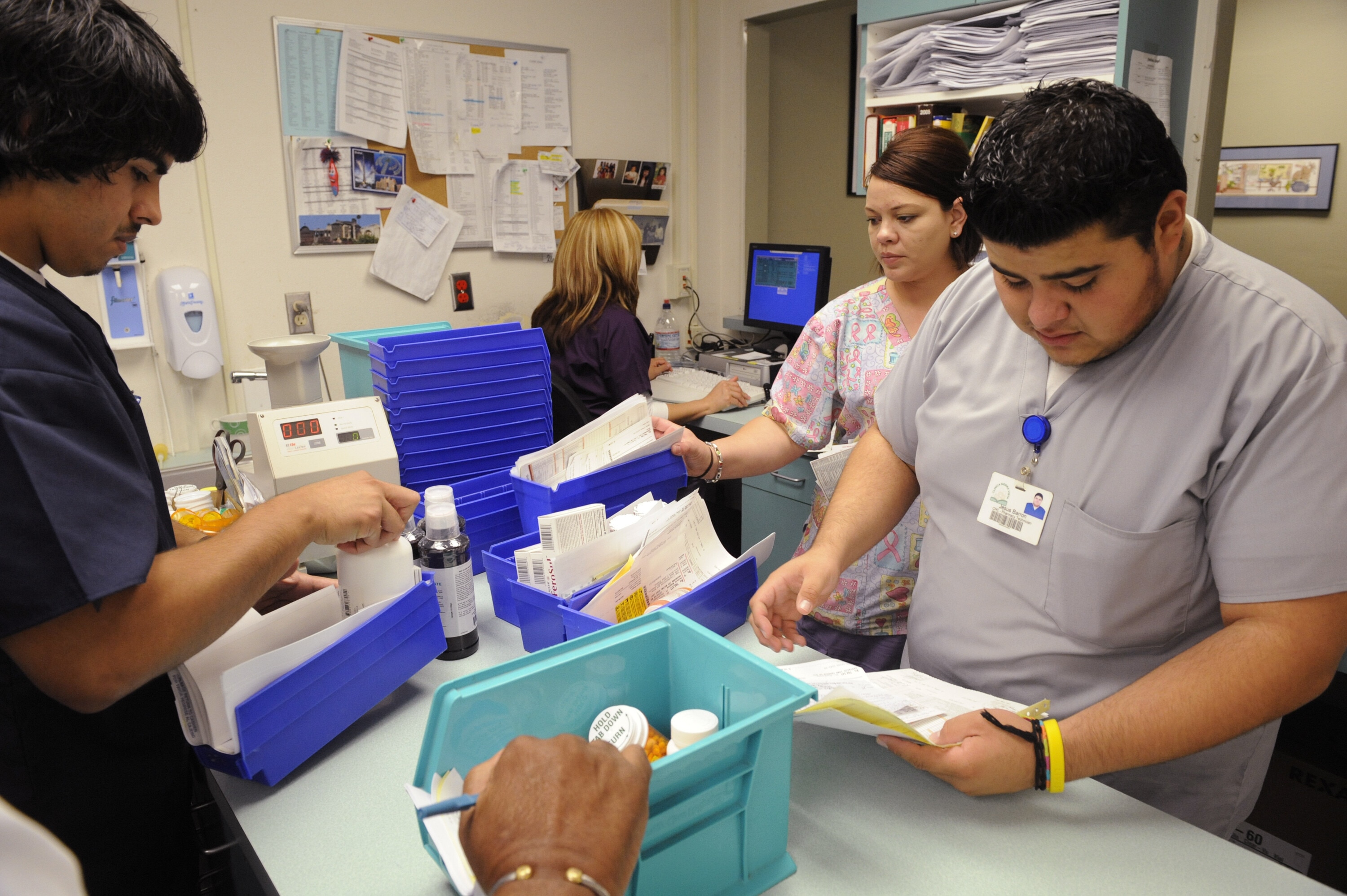4 ways India is deploying AI and innovation to revolutionize healthcare

A healthcare worker helps a patient at a hospital in New Delhi, India. Image: Reuters/Anushree Fadnavis
- India's innovative healthcare strategy offers a model to other low- and middle-income countries.
- AI is spearheading this revolution via accelerated drug discovery and data analysis.
- Digital tools are improving healthcare access, while investment drives systemic innovation.
India’s healthcare system is navigating a decisive moment in 2025. With over 1.4 billion people and mounting public health pressures – from chronic diseases and regional disparities to climate-induced vulnerabilities – the challenges are formidable. Yet, within this complexity lies opportunity. India is pioneering a path that not only reimagines its national health outcomes, but also offers scalable models for other low- and middle-income countries (LMICs).
By embracing artificial intelligence (AI), digital public infrastructure and cross-sector collaboration, India is transitioning from reactive problem-solving to proactive, inclusive innovation. This transformation rests on four key pillars shaping healthcare in India this year.
1. Accelerating innovation through AI-powered drug discovery
AI is transforming the pharmaceutical research landscape by dramatically improving the speed and precision of drug discovery. Globally, AI is projected to drive 30% of all new drug discoveries by 2025, cutting development timelines and costs by as much as 50%.
In India, leading pharmaceutical companies like Sun Pharma and Dr. Reddy’s Laboratories are deploying AI to tackle diseases with high national burdens, such as tuberculosis and diabetes. These efforts are positioning India as a global hub for affordable innovation –especially vital for LMICs that face similar healthcare challenges but lack infrastructure for costly R&D.
Yet as AI accelerates progress, ethical challenges around algorithmic bias, data ownership, and access must be addressed. Global standards for transparent, equitable AI deployment are essential to ensure these tools benefit everyone.
2. Transforming patient engagement with digital tools
The pandemic catalyzed a shift from provider-centric to patient-centric care, and in 2025, that momentum continues. Today, patients are empowered by digital tools that allow them to monitor their health, consult specialists remotely and manage chronic conditions from their homes.
Wearables and mobile apps are providing real-time health data that can trigger early interventions. Platforms like e-Sanjeevani have bridged gaps between urban hospitals and remote villages, for example allowing patients in rural Maharashtra to access timely diagnoses without needing to travel long distances.

Globally, the home-based care economy is booming: McKinsey projects that $265 billion worth of healthcare services will shift to home settings by the end of this year. India’s ability to scale low-cost, high-impact digital tools positions it as a leader in this transformation. But access alone is not enough. Addressing digital literacy and infrastructure gaps, particularly in underserved communities, must remain a policy priority.
3. Strategic investment driving systemic innovation
India’s healthcare innovation ecosystem is gaining momentum through increased biopharma funding, global partnerships and an active M&A landscape. In 2024, the sector saw a 24% increase in funding, and 2025 is on track to surpass that.
India remains a world leader in generics and biosimilars, offering cost-effective treatments that serve both domestic and global markets. At the same time, AI-focused collaborations between tech firms and pharma players are expanding the frontiers of diagnostics, disease modelling and real-world data analysis.
Investments in cold chain logistics, supply resilience and interoperable data platforms are ensuring that medications reach even the most remote areas. These developments aren’t just improving local health outcomes – they’re also shaping India’s role as a reliable partner in global health security.
4. Unlocking AI’s potential through health data interoperability
AI in healthcare is only as powerful as the data it learns from – and this is where India is making bold strides. The Ayushman Bharat Digital Mission is working to digitize more than 500 million patient records, improving long-term care and enabling predictive health modeling.
One of the most promising innovations lies in federated learning – where decentralized AI models are trained across multiple datasets without compromising individual privacy. This approach allows India to improve diagnostic accuracy while safeguarding patient rights.
Moreover, public-private ecosystems are forming to ensure that health data flows seamlessly across providers, insurers and regulators. The OECD emphasizes that global health data collaboration is key to avoiding fragmentation and duplicative efforts. India’s investment in digital interoperability is helping to shape that global conversation.
From innovation to impact
India’s healthcare transformation is more than a domestic success story – it’s a beacon for what’s possible when emerging economies invest in inclusive innovation. But realizing this vision requires shared responsibility.
Governments and policy-makers must develop international AI governance frameworks that prevent data monopolization and promote ethical use. Investors and industry leaders should fund privacy-conscious AI models and scale digital public infrastructure to reach last-mile communities. Global organizations like WHO, OECD and the World Economic Forum must support interoperability standards and foster knowledge exchange between emerging economies like India, Indonesia and Brazil.
How the Forum helps leaders strengthen health systems through collaboration
The future of healthcare isn’t inevitable – it’s a choice. India is choosing collaboration, intelligence and equity. If the rest of the world is bold enough to follow suit, it will be healthier, more resilient and more connected than ever before.
Don't miss any update on this topic
Create a free account and access your personalized content collection with our latest publications and analyses.
License and Republishing
World Economic Forum articles may be republished in accordance with the Creative Commons Attribution-NonCommercial-NoDerivatives 4.0 International Public License, and in accordance with our Terms of Use.
The views expressed in this article are those of the author alone and not the World Economic Forum.
Stay up to date:
Artificial Intelligence
Related topics:
Forum Stories newsletter
Bringing you weekly curated insights and analysis on the global issues that matter.
More on Health and Healthcare SystemsSee all
Priya Abani
February 18, 2026






